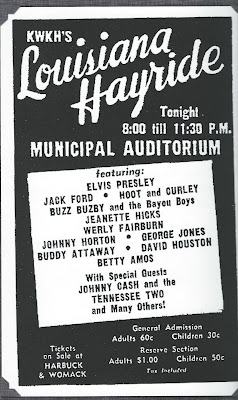THE RADIO NAME GAME Part One
In “DJ
DIARIES; RADIO’S REMARKABLE LISTENERS,” I mention that a lot of disk jockeys change their names. They do so for a lot of reasons like; not enjoying
your home phone ringing as you’re sleeping at three AM and it’s a drunk calling
wanting to request a song. Or maybe the
DJ is trying to keep a fanatical fan from finding out
where you really live, (Yes that really happen, and wives really
hate that!) You can bet when I was
in one of ‘Duke’ John Wayne’s movies I never called
him Marion
Mitchell Morrison, his given name.
No way, dude! Did you know talk radio host Rush Limbaugh, who now uses his real name, was
known under the radio name Jeff Christie in his days as a
top-40 disk jockey?
.jpg) |
| "The Duke" John Wayne |
By now
you’ve guessed that Dave Donahue may
not be my real name, right? Tis’
true! In the course of my career I’ve
had many ‘air names’ as we called them in radio. Yeah, sometimes maybe a little ego had something
to do with it, but in my case it was simply because no one seemed to be able to
pronounce my real name right.
“Loyal Mum-or Numb something?” or maybe “Lu-well
Nutley” “Lloyd,” uh… “Floyd” even “Lodi-e Fum-blee” or
simply…”what did you say your name was again????” Hell, even the radio people that hired me
couldn’t remember it, or spell it right on my paycheck…sooooo, I HAD to chance it.
It was the
fifties and a lot of DJ’s started using cutesy easy to remember names like…”Moon
Dog” “Mad Daddy” “The Big Bopper” or
like I said, “DJ Daddy-O-Hotrod” who was the future singing teen idol, Tommy
Sands. Tommy and I
spent many
hours laughing over crazy things teenagers would talk about as we hung out at a
small Chinese restaurant near the radio station where he worked in Shreveport,
Louisiana.
 |
| The Big Bopper |
One day I
was complaining about my name problem and Tommy said, “Hey, let’s come up with
a cool cat name for you.” We banged
around a lot of names, most I don’t remember, but we both got to talking about
the old radio shows and how some of the great detectives had great radio names
like, “Philip Marlowe” “Joe Friday”
“Boston Blackie” “Hank Mitchell in Night Beat” or “Yours truly Johnny Dollar.”
“That’s it!”
I said to Tommy, “how about Joe Marlowe, uh, Johnny Dallas, Bobby Backbeat?”
“Gad,” Tommy
replied, rolling his eyes, then he smiled, “saaaay…how about…Johnny
Night? That sounds mysterious,
yet way, way cools-ville, like wow, man!”
“JOHNNY NIGHT”
So my very
first radio name became “Johnny Night” which I changed to,
‘Johnny Knight’ as I would hit the ‘radio waves’ working mainly night
shifts as I moved into larger cities.
But it would
not be my last radio name. I used ‘Mark
O Marks’ or as I used to say on the air sometimes…”this is your MOM on
the radio, ha-ha!” And I developed a
whole cast of voice characters like, ‘Skid’ Marks-a famous race car driver, ‘Whip’ Marks-a famous Cowboy, and ‘Water’ Marks-a famous swimmer, who always talked with a mouth full of water! (True!)
Some radio stations owned their own DJ names
and when one jock left the new one coming in HAD to use the same name of the departed. I was also known on the radio as ‘Paul
J Thomas’ ‘PJ Thomas’ and finally as, ‘Dave Donahue,’ the name
I still use to this day.
“DAVE DONAHUE?”







